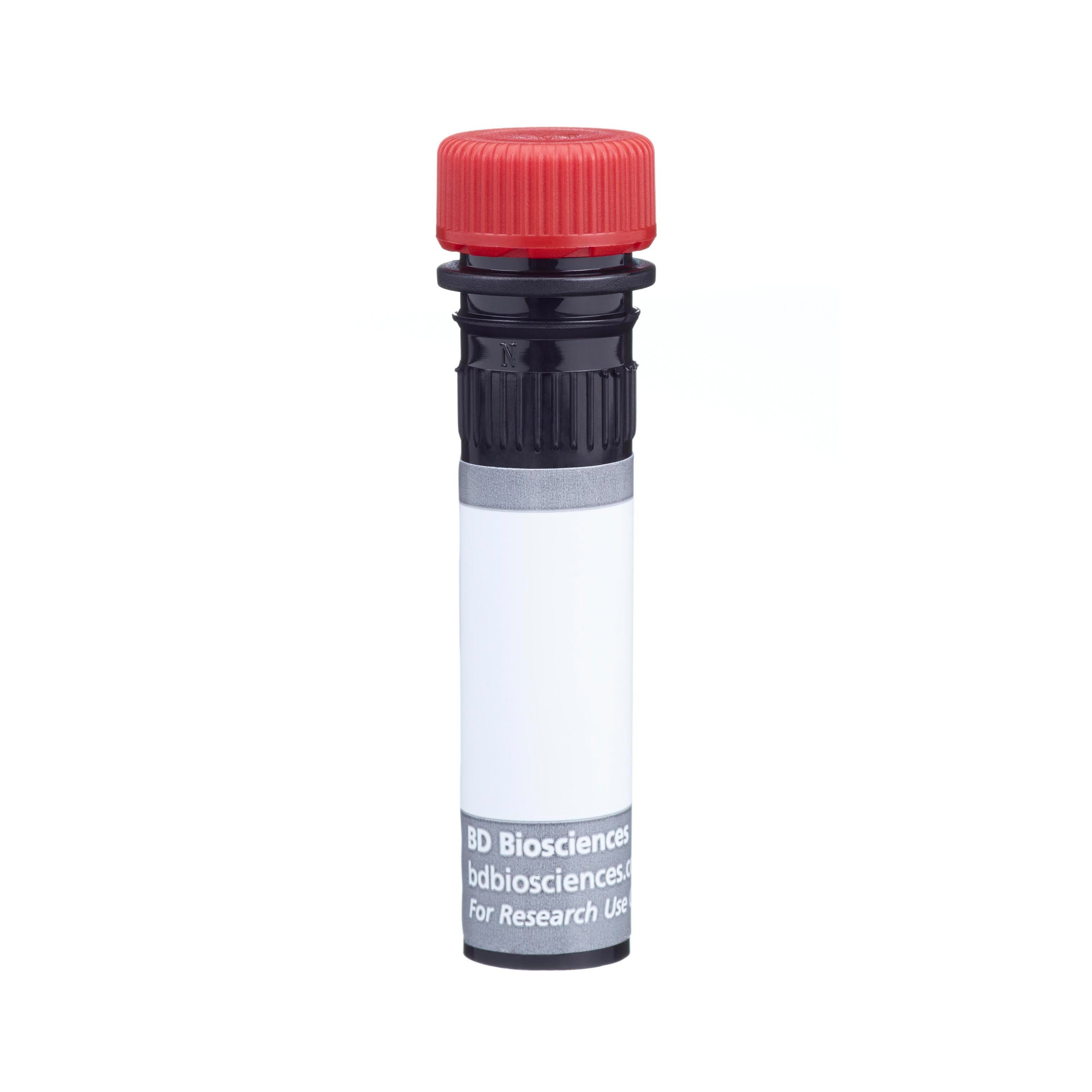Old Browser
This page has been recently translated and is available in French now.
Looks like you're visiting us from {countryName}.
Would you like to stay on the current country site or be switched to your country?


Regulatory Status Legend
Any use of products other than the permitted use without the express written authorization of Becton, Dickinson and Company is strictly prohibited.
Preparation And Storage
Recommended Assay Procedures
For optimal and reproducible results, BD Horizon Brilliant Stain Buffer should be used anytime two or more BD Horizon Brilliant dyes (including BD OptiBuild Brilliant reagents) are used in the same experiment. Fluorescent dye interactions may cause staining artifacts which may affect data interpretation. The BD Horizon Brilliant Stain Buffer was designed to minimize these interactions. More information can be found in the Technical Data Sheet of the BD Horizon Brilliant Stain Buffer (Cat. No. 563794).
Product Notices
- This antibody was developed for use in flow cytometry.
- The production process underwent stringent testing and validation to assure that it generates a high-quality conjugate with consistent performance and specific binding activity. However, verification testing has not been performed on all conjugate lots.
- Researchers should determine the optimal concentration of this reagent for their individual applications.
- An isotype control should be used at the same concentration as the antibody of interest.
- Caution: Sodium azide yields highly toxic hydrazoic acid under acidic conditions. Dilute azide compounds in running water before discarding to avoid accumulation of potentially explosive deposits in plumbing.
- For fluorochrome spectra and suitable instrument settings, please refer to our Multicolor Flow Cytometry web page at www.bdbiosciences.com/colors.
- Please refer to www.bdbiosciences.com/us/s/resources for technical protocols.
- BD Horizon Brilliant Stain Buffer is covered by one or more of the following US patents: 8,110,673; 8,158,444; 8,575,303; 8,354,239.
- BD Horizon Brilliant Ultraviolet 805 is covered by one or more of the following US patents: 8,110,673, 8,158,444; 8,227,187; 8,575,303; 8,354,239.
Companion Products






Reacts with platelet derived growth factor (PDGF) receptor β, a 170-190 kDa single transmembrane glycoprotein expressed on fibroblasts, smooth muscle cells, glial cells and chondrocytes. PDGF receptors, α and β, are single glycoproteins with intracellular tyrosine kinase domains. They are structurally similar to M-CSF receptor and CD117 (c-kit). Their ligand, PDGF, is a mitogen for connective tissue cells and glial cells. PDGF plays a role in wound healing and acts as a chemoattractant for fibroblasts, smooth muscle cells, glial cells, monocytes and neutrophils. Functional PDGF is secreted as a disulfide-linked dimer of A and B chains (PDGF-AA, PDGF-BB or PDGF-AB). Binding of divalent PDGF induces receptor dimerization with three possible forms: αα, αβ, ββ. The PDGF receptor α-subunit binds both PDGF A and B chains, whereas the receptor β-subunit binds only PDGF B chain. Both receptor subunits can stimulate mitogenic responses, only the β subunit can induce chemotaxis. 28D4 is specific for PDGFRβ and does not cross-react with PDGFRα.
The antibody was conjugated to BD Horizon™ BUV805 which is part of the BD Horizon Brilliant™ Ultraviolet family of dyes. This dye is a tandem fluorochrome of BD Horizon BUV395 with an Ex Max of 348 nm and an acceptor dye with an Em Max at 805 nm. BD Horizon Brilliant BUV805 can be excited by the ultraviolet laser (355 nm) and detected with a 820/60 filter and a 770LP.

Development References (5)
-
Battula VL, Treml S, Abele H, Buhring HJ. Prospective isolation and characterization of mesenchymal stem cells from human placenta using a frizzled-9-specific monoclonal antibody. Differentiation. 2008; 76(4):326-336. (Clone-specific). View Reference
-
Claesson-Welsh L. Platelet-derived growth factor receptor signals. J Biol Chem. 1994; 269(51):32023-32026. (Biology). View Reference
-
Ebert M, Kasper HU, Hernberg S, et al. Overexpression of platelet-derived growth factor (PDGF) B chain and type beta PDGF receptor in human chronic pancreatitis. Dig Dis Sci. 1998; 43(3):567-574. (Biology). View Reference
-
Hart CE, Bowen-Pope DF. CD140a and b (PDGRα and β) Workshop Panel report. In: Kishimoto T. Tadamitsu Kishimoto .. et al., ed. Leucocyte typing VI : white cell differentiation antigens : proceedings of the sixth international workshop and conference held in Kobe, Japan, 10-14 November 1996. New York: Garland Pub.; 1997:739-741.
-
Yang M, Khachigian LM, Hicks C, Chesterman CN, Chong BH. Identification of PDGF receptors on human megakaryocytes and megakaryocytic cell lines. Thromb Haemost. 1997; 78(2):892-896. (Biology). View Reference
Please refer to Support Documents for Quality Certificates
Global - Refer to manufacturer's instructions for use and related User Manuals and Technical data sheets before using this products as described
Comparisons, where applicable, are made against older BD Technology, manual methods or are general performance claims. Comparisons are not made against non-BD technologies, unless otherwise noted.
For Research Use Only. Not for use in diagnostic or therapeutic procedures.
Report a Site Issue
This form is intended to help us improve our website experience. For other support, please visit our Contact Us page.